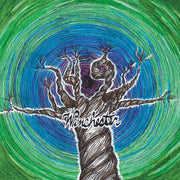Patron Saint of Tireless Losers - Black LP
Artist
Format
Genre
Style
Label
Release Date
06/28/2024
Store
Price
Catalog Number: WV258LP
Color: Black
Format: LP
UPC: 0843563170045
RIYL: Wilco, Elliott Smith, Harry Nilsson, Pedro The Lion, Randy Newman. On his acclaimed LPs with his experimental rock band Wilder Maker, Brooklyn singer-songwriter Gabriel Birnbaum's animus has been breaking molds. Records like 2018's sprawling concept album Zion and last year's guest-lead-singer-filled treasure trove Male Models highlighted the 37-year-old musician's penchant for formal adventurousness, stylistic pivots, and lyrical verbosity the kind that mirrors the flow of a warm and spirited conversation, betraying a fascination with influences from Bob Dylan to Billy Woods. On his albums billed to Gabriel Birnbaum, he focuses on economy and direct emotional resonance, bending classic American songforms to his will. Following 2019's Not Alone--and coming after a busy period of production and arranging work for artists like Mutual Benefit and Katie Von Schleicher his stunning new solo album Patron Saint of Tireless Losers is the most immediate and narratively kaleidoscopic collection of songs of his career both deeply personal and enigmatic in a way that encourages serial relistens. With sensitivity and patience, Birnbaum cuts straight to the spiritual essence of the characters he inhabits, painting affecting and lovingly drawn scenes bolstered by cathartic hooks. Recorded in the winter of 2019, Patron Saint like Not Alone channels the production methodology of Neil Young and Crazy Horse: made in a few days with none of the players having heard the material ahead of time. Birnbaum an accomplished saxophonist as well as guitarist and singer has one foot in the world of NYC jazz and avant-garde music, and works with players who mix indie rock and Americana bonafides with free-improv instincts: Will Graefe (guitar/bass), Adam Brisbin (guitar/bass), and Jason Nazary (drums). The spontaneity of the playing shapes the dramatic situation in each track; at turns, they build to the point of obscuring the chord structure and exploding the tempo see Nazary mimicking the turbulent thought process of the narrator in "Same As You." Elsewhere, they assume a more atmospheric role, stripping back to evoke the story's mise-en-scene, as in the gorgeous, gently restless "A Drunk." Elsewhere, the songs and arrangements adopt a more restrained presentation, based on striking melodic counterpoint, recalling Wilco or Elliott Smith at their most baroque. These sensitive arrangements underscore a dizzying and impressive spread of themes and dramatic scenarios. Nearly every song takes place from the vantage of a different character, including young women, aging fathers, paranoid preppers in a post-apocalyptic world, and lonely men reaching out for connection. The throughline between these individuals is that they are usually struggling to reconcile the reality they cling to--often with no small amount of desperation with a broader, harsher reality of which they are just becoming aware. Birnbaum cites one of his favorite collections of short stories, James Joyce's Dubliners as inspiration. "Many of my songs overlap with the scenarios in that book: people who think they have a way out and then something happens and then it's just like, "no." It's a classic human experience." The barriers that the record's narrators often come up against are both real and imagined. They bemoan their own concrete failures but also fantasize about straw-man adversaries and their own impending mortality. As with many Birnbaum-helmed releases, their moments of reckoning, whether positive or negative, often come in bars or parties. Opener "Laughing Backwards" comes from a celebratory but avoidant hang, revisiting the scene of the crime the bar where they watched the 2016 election and having a good time between the pall still hanging over the world. Elsewhere, the narrator of "Same as You" confronts self-hatred and disillusionment in a crowd at a concert; in the searing "The More They Come Around," they embrace chaos in the context of a wider sense of political malaise and cultural nihilism. Anyone who has followed any part of Gabriel Birnbaum's diverse and inevitably compelling musical exploits over the past couple of decades knows that his governing impulse has always been to avoid stock perspectives and familiar platitudes. Like one of his own espoused patron saints Paul Simon Birnbaum sets new challenges for himself with each recording, honing the nuts and bolts of his songcraft and pinpointing unexpected new aesthetic contexts for it. (He's proved his ability with hooky AM-rock earworms, long-form blues exegeses, infectious riff-rock, au courante R&B, and more.) The lush and psychedelic folk-rock songs on Patron Saint of Tireless Losers confidently cut to the essence of his artistry, highlighting a mature narrative voice and always surprising musical syntax. As much as anything Birmbaum has put into the world, it is a tour de force that thrives on both self-assuredness and restlessness marks of a crucial and constantly evolving artist whose work it's impossible to turn away from once you tap into its frequency.











